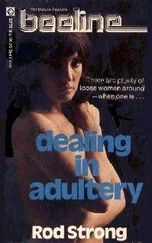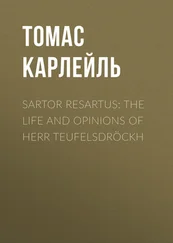Vladimir Nabokov - Strong opinions
Здесь есть возможность читать онлайн «Vladimir Nabokov - Strong opinions» весь текст электронной книги совершенно бесплатно (целиком полную версию без сокращений). В некоторых случаях можно слушать аудио, скачать через торрент в формате fb2 и присутствует краткое содержание. Город: New York, Год выпуска: 1990, Издательство: First Vintage International Edition, Жанр: Классическая проза, на английском языке. Описание произведения, (предисловие) а так же отзывы посетителей доступны на портале библиотеки ЛибКат.
- Название:Strong opinions
- Автор:
- Издательство:First Vintage International Edition
- Жанр:
- Год:1990
- Город:New York
- ISBN:нет данных
- Рейтинг книги:4 / 5. Голосов: 1
-
Избранное:Добавить в избранное
- Отзывы:
-
Ваша оценка:
- 80
- 1
- 2
- 3
- 4
- 5
Strong opinions: краткое содержание, описание и аннотация
Предлагаем к чтению аннотацию, описание, краткое содержание или предисловие (зависит от того, что написал сам автор книги «Strong opinions»). Если вы не нашли необходимую информацию о книге — напишите в комментариях, мы постараемся отыскать её.
Strong opinions — читать онлайн бесплатно полную книгу (весь текст) целиком
Ниже представлен текст книги, разбитый по страницам. Система сохранения места последней прочитанной страницы, позволяет с удобством читать онлайн бесплатно книгу «Strong opinions», без необходимости каждый раз заново искать на чём Вы остановились. Поставьте закладку, и сможете в любой момент перейти на страницу, на которой закончили чтение.
Интервал:
Закладка:
Citing in Lolita the same kind of acidetched scene you've just described, many critics have called the book a masterful satiric social commentary on America. Are they right?
Well, I can only repeat that I have neither the intent nor the temperament of a moral or social satirist. Whether or not critics think that in Lolita I am ridiculing human folly leaves me supremely indifferent. But I am annoyed when the glad news is spread that I am ridiculing America.
But haven't you written yourself that there is «nothing more exhilarating than American Philistine vulgarity»?
No, 1 did not say that. That phrase has been litted out ot context, and, like a round, deepsea fish, has burst in the process. If you look up my little afterpiece, «On a Book Entitled Lolita», which I appended to the novel, you will see that what I really said was that in regard to Philistine vulgarity — which 1 do feel is most exhilarating — no difference exists between American and European manners. I go on to say that a proletarian from Chicago can be just as Philistine as an English duke.
Many readers have concluded that the Philistinism you seem to find the most exhilarating is that of Americas sexual mores.
Sex as an institution, sex as a general notion, sex as a problem, sex as a platitude — all this is something I find too tedious for words. Let us skip sex.
Have you ever been psychoanalyzed?
Have I been what? Subjected to psychoanalytical examination. Why, good God?
In order to see how it is done. Some critics have felt that your barbed comments about the fashionability of Freudianism, as practiced by American analysts, suggest a contempt based upon familiarity.
Bookish familiarity only. The ordeal itself is much too silly and disgusting to be contemplated even as a joke. Freudism and all it has tainted with its grotesque implications and methods appears to me to be one of the vilest deceits practiced by people on themselves and on others. I reject it utterly, along with a few other medieval items still adored by the ignorant, the conventional, or the very sick.
Speaking of the very sick, you suggested in Lolita that Humbert Humberts appetite for nymphets is the result of an unrequited childhood love affair; in Invitation to a Beheading you wrote about a 12yearold girl, Emmie, who is erotically interested in a man twice her age; and in Bend Sinister your protagonist dreams that he is «surreptitiously enjoying Mariette (his maid) while she sat, wincing a little, in his lap during the rehearsal of a play in which she was supposed to be his daughter». Some critics, in poring over your works for clues to your personality, have pointed to this recurrent theme as evidence of an unwholesome preoccupation on your part with the subject of sexual attraction between pubescent girls and middleaped men. Do you feel that there may be some truth in this charge?
I think it would be more correct to say that had I not written Lolita, readers would not have started finding nymphets in my other works and in their own households. I find it very amusing when a friendly, polite person says to me — probably just in order to be friendly and polite — «Mr. Naborkov», or «Mr. Nabahkov», or «Mr. Nabkov» or «Mr. Nabohkov», depending on his linguistic abilities, «I have a little daughter who is a regular Lolita». People tend to underestimate the power of my imagination and my capacity of evolving serial selves in my writings. And then, of course, there is that special type of critic, the ferrety, humaninterest fiend, the jolly vulgarian. Someone, for instance, discovered telltale affinities between Humhert's boyhood romance on the Riviera and my own recollections about little Colette, with whom I built damp sand castles in Biarritz when I was ten. Somber Humbert was, of course, thirteen and in the throes of a pretty extravagant sexual excitement, whereas my own romance with Colette had no trace of erotic desire and indeed was perfectly commoner place and normal. And, of course, at nine and ten years of age, in that set, in those times, we knew nothing whatsoever about the false facts of life that are imparted nowadays to infants by progressive parents.
Why false?
Because the imagination of a small child — especially a town child — at once distorts, stylizes, or otherwise alters the bizarre things he is told about the busy bee, which neither he nor his parents can distinguish from a bumblebee, anyway
What one critic has termed your «almost obsessive attention to the phrasing, rhythm, cadence and connotation of words» is evident even in the selection of names for your own celebrated bee and bumblebee — Lolita and Humbert Humbert. How did they occur to you?
For my nymphet 1 needed a diminutive with a lyrical lilt to it. One of the most limpid and luminous letters is «L». The suffix «ita» has a lot of Latin tenderness, and this I required too. Hence: Lolita. However, it should not be pronounced as you and most Americans pronounce it: Lowleeta, with a heavy, clammy «L» and a long «o». No, the first syllable should be as in «lollipop», the «L» liquid and delicate, the «lee» not too sharp. Spaniards and Italians pronounce it, of course, with exactly the necessary note of archness and caress. Another consideration was the welcome murmur of its source name, the fountain name: those roses and tears in «Dolores» My little girl's heartrending fate had to be taken into account together with the cuteness and limpidity. Dolores also provided her with another, plainer, more familiar and infantile diminutive: Dolly, which went nicely with the surname «Haze», where Irish mists blend with a German bunny — I mean, a small German hare.
You're making a wordplayful reference, of course, to the German term for rabbit — Hase. But what inspired you to dub Lolita's aging inamorato with such engaging redundancy?
That, too, was easy. The double rumble is, I think, very nasty, very suggestive. It is a hateful name for a hateful person. It is also a kingly name, and I did need a royal vibration for Humbert the Fierce and Humbert the Humble. Lends itself also to a number of puns. And the execrable diminutive «Hum» is on a par, socially and emotionally, with «Lo”, as her mother calls her.
Another critic has written of you that «the task of sifting and selecting just the right succession of words from that multilingual memory, and of arranging their manymirrored nuances into the proper juxtapositions, must be psychically exhausting work”. Which of all your books, in this sense, would you say was the most difficult to write?
Oh, Lolita, naturally. I lacked the necessary information — that was the initial difficulty. I did not know any American 12yearold girls, and I did not know America; I had to invent America and Lolita. It had taken me some forty years to invent Russia and Western Europe, and now I was faced by a similar task, with a lesser amount of time at my disposal. The obtaining of such local ingredients as would allow me to inject average «reality» into the brew of individual fancy proved, at fifty, a much more difficult process than it had been in the Europe of my youth.
Though born in Russia, you have lived and worked for many years in America as well as in Europe. Do you feel any strong sense of national identity?
I am an American writer, born in Russia and educated in England where 1 studied French literature, before spending fifteen years in Germany. I came to America in 1940 and decided to become an American citizen, and make America my home. It so happened that I was immediately exposed to the very best in America, to its rich intellectual life and to its easygoing, goodnatured atmosphere. I immersed myself in its great libraries and its Grand Canyon. I worked in the laboratories of its zoological museums. I acquired more friends than I ever had in Europe. My books — old books and new ones — found some admirable readers. I became as stout as Cortez — mainly because I quit smoking and started to munch molasses candy instead, with the result that my weight went up from my usual 140 to a monumental and cheerful 200. In consequence, I am onethird American — good American flesh keeping me warm and safe.
Читать дальшеИнтервал:
Закладка:
Похожие книги на «Strong opinions»
Представляем Вашему вниманию похожие книги на «Strong opinions» списком для выбора. Мы отобрали схожую по названию и смыслу литературу в надежде предоставить читателям больше вариантов отыскать новые, интересные, ещё непрочитанные произведения.
Обсуждение, отзывы о книге «Strong opinions» и просто собственные мнения читателей. Оставьте ваши комментарии, напишите, что Вы думаете о произведении, его смысле или главных героях. Укажите что конкретно понравилось, а что нет, и почему Вы так считаете.










